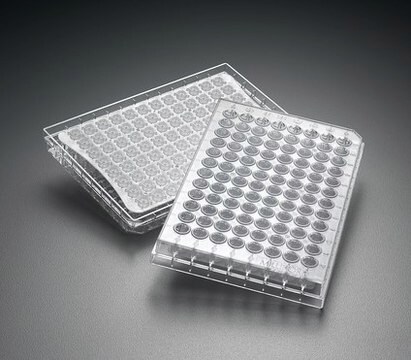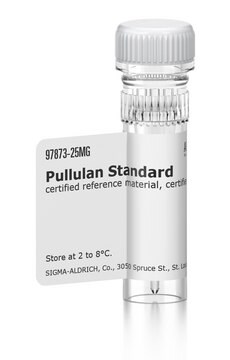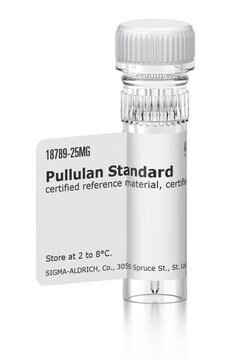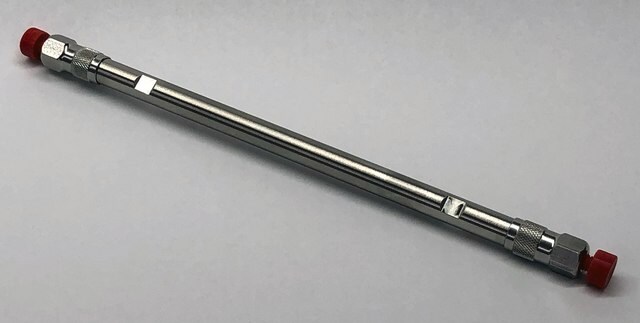Recommended Products
biological source
bacterial (Leuconostoc mesenteroides)
form
solid
shipped in
wet ice
storage temp.
−20°C
Application
The dextran ladder is used as an external standard for the analysis of glycans by normal phase HPLC after fluorescent labeling. This standard gives a characteristic ladder profile from monomeric glucose to approximately a 20-mers of glucose oligosaccharide, dependent upon the chromatographic conditions employed. The elution position of each peak in this ladder is expressed as a glucose unit (gu) and is used to assign gu values to peaks in the released glycan pool.Dextran ladder upon derivitization can be used as a new tool to assess cell layer tightness.
Preparation Note
The dextran ladder is prepared by partial acid hydrolysis of dextran from Leuconostoc mesenteroides with an average molecular weight of 100-200 kDa. The purity and structural integrity of the ladder is assessed by fluorescently labeling an aliquot and subsequent analysis by normal phase HPLC.
related product
Product No.
Description
Pricing
Storage Class Code
11 - Combustible Solids
WGK
WGK 3
Flash Point(F)
Not applicable
Flash Point(C)
Not applicable
Certificates of Analysis (COA)
Search for Certificates of Analysis (COA) by entering the products Lot/Batch Number. Lot and Batch Numbers can be found on a product’s label following the words ‘Lot’ or ‘Batch’.
Already Own This Product?
Find documentation for the products that you have recently purchased in the Document Library.
Customers Also Viewed
A novel tool to characterize paracellular transport: the APTS-dextran ladder.
Neuhaus W, Bogner E, Wirth M, et al.
Pharmaceut. Res., 23, 1491-1501 (2006)
Winfried Neuhaus et al.
Journal of pharmaceutical and biomedical analysis, 40(4), 1035-1039 (2005-10-26)
The aim of this work was the development of an easy manageable analytic system for describing tightness of cell layers in a molecular size dependent manner, which is more precise than currently used ones. Dextrans were labeled by reductive amination
J Charlwood et al.
Analytical biochemistry, 273(2), 261-277 (1999-09-02)
Reverse- and normal-phase chromatography have been used to separate a number of standard human milk oligosaccharides derivatized via a reductive amination reaction with 2-aminoacridone (2-AMAC). Analytes were detected by spectrofluorimetry and injected simultaneously with a hydrolyzed dextran ladder derivatized with
Our team of scientists has experience in all areas of research including Life Science, Material Science, Chemical Synthesis, Chromatography, Analytical and many others.
Contact Technical Service





